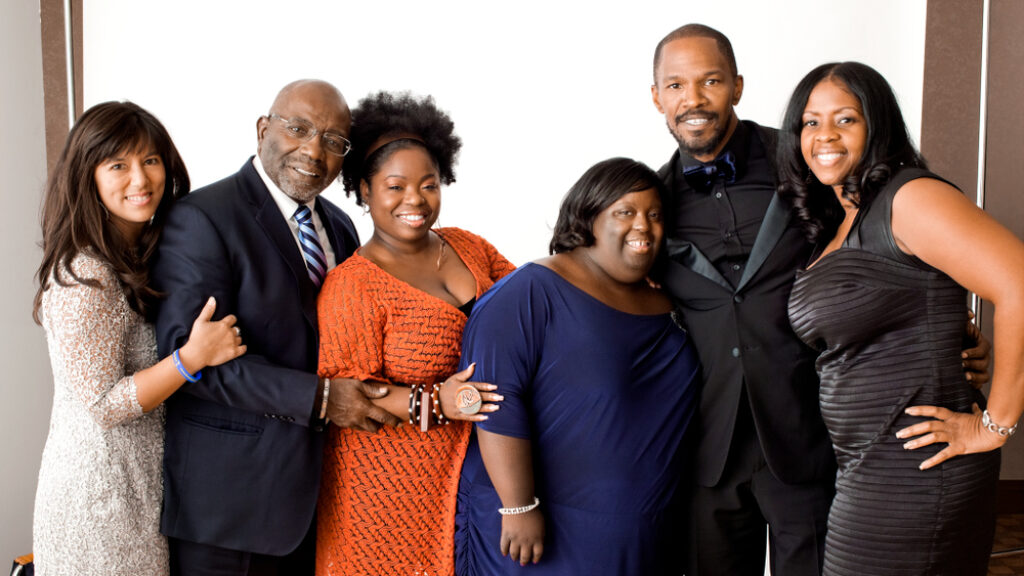On Dec. 4, the largest-ever number of self-advocates with Down syndrome came to Capitol Hill. They came from 23 states to join a congressional briefing hosted by the GLOBAL Down Syndrome Foundation, Sen. John Hickenlooper (D-CO), and Rep. Cathy McMorris Rodgers (R-WA). We brought together families, nonprofit leaders, researchers, and policymakers to urge the Senate to pass the DeOndra Dixon INCLUDE Project Act with an important five-year funding plan of $250 million.
This unprecedented legislation is our opportunity to advance research and dramatically improve health care for people with Down syndrome, address long-standing gaps in our medical understanding, and unlock critical insights that could also benefit those without Down syndrome.
advertisement
It also represents a legacy for two women who have significantly improved the lives of thousands of people with Down syndrome: Rep. Cathy McMorris Rodgers and DeOndra Dixon, Jamie’s sister and a GLOBAL ambassador.
The National Institutes of Health established the INCLUDE (INvestigation of Co-occurring conditions across the Lifespan to Understand Down syndromE) Project in 2018, as a result of GLOBAL’s advocacy and McMorris Rodger’s leadership. Down syndrome is the leading cause of developmental delay, yet prior to the INCLUDE Project, it was the least funded genetic condition at the NIH for nearly two decades. Undoing the years of underfunding and discrimination takes time, but we are doing just that. Today, the INCLUDE Project is a gold standard of NIH cross-institute investment and research harmonization, yielding dramatic translational results in a very short time.
The INCLUDE Project is designed to leverage the fact that people with Down syndrome are highly predisposed to certain diseases such as Alzheimer’s, congenital heart disease, and autoimmune disorders and highly protected from others, including solid tumors and certain types of heart attack and stroke. With continued, sufficient funding, INCLUDE can explore these areas comprehensively, accelerating breakthroughs that have the potential to transform health care for people with Down syndrome and millions more without Down syndrome.
advertisement
The DeOndra Dixon INCLUDE Project Act will ensure that the discriminatory bias against Down syndrome research does not happen again. While we have made strides through NIH funding of the INCLUDE Project, a $250 million funding plan would allow for incremental growth each year that will sustain and expand critical longitudinal, in-depth studies leading to dramatically increased lifespan and quality of life for our children and adults with Down syndrome.
In addition, we are finding that better overall health improves cognition, which can lead to the ability to engage more in all aspects of society. We’re calling on Congress to embrace this opportunity for both the Down syndrome community and the millions afflicted with Alzheimer’s, solid tumors, and the like who stand to benefit from this research and legislation.
This legislation honors the memory of GLOBAL Ambassador DeOndra Dixon, Jamie’s younger sister, who passed shortly after her 36th birthday. DeOndra was vibrant, intelligent, and a fearless advocate for her community. When we lost DeOndra, we both lost a part of our soul. Her life highlights the urgent need to address health disparities in the Down syndrome population, shaped by ethnicity, gender, geography, and co-occurring conditions. The INCLUDE Project supports research that tackles these disparities, addressing specialized care, mental health, and more. This inclusive approach improves care for individuals with Down syndrome while offering valuable insights for advancing broader medical research.
Rep. Cathy McMorris Rodgers has been a tireless advocate since the birth of her son, Cole. She introduced the DeOndra Dixon INCLUDE Project Act through the House Energy & Commerce Committee and helped organize the first-ever congressional hearing on Down syndrome research in 2017. As she prepares to leave Congress, we are determined to make this bill a lasting part of her legacy.
The legislation isn’t just about research funding. Historically, people with Down syndrome have been excluded from clinical trials, even for Alzheimer’s, which affects 80% of this population. This bill aims to end that exclusion by supporting research tailored to their unique needs while ensuring broader trial participation. It’s a step toward equity in science and care, benefiting not just those with Down syndrome but the health care system as a whole.
advertisement
At GLOBAL, we work with researchers, scientists, and healthcare professionals who have been instrumental in advancing understanding in fields related to Down syndrome yet are hindered by funding limitations. We’ve also seen the power of medical research to transform lives. Decades of progress in conditions like cancer, diabetes, and heart disease remind us that groundbreaking advancements are possible when we make adequate investments.
We cannot afford to wait. Science has already shown us the unique opportunities for discovery within Down syndrome research. By embracing the DeOndra Dixon INCLUDE Project Act at its full funding level, Congress can ensure these opportunities are realized, unlocking advancements that will benefit people with Down syndrome, those with related conditions, and 60% of Americans who suffer from diseases that those with Down syndrome are predisposed to or protected from.
This is not about politics — this is about humanity. This legislation can bring people together and potentially impact countless lives. We call on the Senate to honor the legacy of DeOndra Dixon, who inspired this act, by providing a pathway to better health care, scientific equity, and a future filled with possibility.
Michelle Sie Whitten is president and CEO of the GLOBAL Down Syndrome Foundation. Jamie Foxx is an Academy Award and Grammy Award winner and a GLOBAL international spokesperson.

